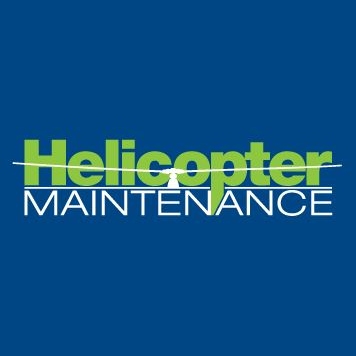
Knowledge and Training The Same – But Different

Knowledge and training are two interesting words to say the least, especially in the field of helicopter maintenance expertise. How do these words apply to what we do as helicopter maintenance professionals? I have often said, “if you think training is expensive, see what ignorance will cost you.” In our highly-specialized field of work, knowledge and training go hand in hand, but they are different.
One way to define knowledge is to describe it as a familiarity with someone or something that can include facts, descriptions, information and/or skills acquired through experience or education. It can refer to both the theoretical and practical understanding of a subject. It can be implicit (as with a practical skill or expertise) or explicit (as with the theoretical understanding of a subject). In philosophy, the study of knowledge is called epistemology. The philosopher Plato famously defined knowledge as “justified true belief.” There is no single, agreed-upon definition of knowledge, but there are numerous theories to explain it. This is pretty heavy stuff!
I would just say that the acquisition of knowledge involves complex cognitive processes: perception, learning, communication, association and reasoning. Said this way, it is just easier to get a handle on it.
Knowledge is what we have acquired throughout our lives up to this point and it is ongoing. Our storage of knowledge increases daily and is limitless. It is more general than specific in nature. How to read, write, do math, talk, etc., is all knowledge acquired. One could make the argument that classes we have attended to obtain specific licensing credentials in our field of employment are also knowledge, but here I disagree. When we go for something that is more specific than general in nature and is finite in scope and length, that is training — and that is where the difference is applied.
One definition of training states that it is “a process to change our attitude, knowledge, skills and behavior.” The term refers to the acquisition of knowledge, skills and competencies as a result of the teaching of vocational or practical skills and knowledge that relates to specific useful abilities. It forms the core of apprenticeships and provides the backbone of content at technical colleges. In addition to the basic training required for a trade, occupation or profession, observers of the labor market recognize the need to continue training beyond initial qualifications to maintain, upgrade and update skills throughout the working life of the individual. People within many professions and occupations usually refer to this sort of training as professional development. With training we receive knowledge; with knowledge we do not necessarily receive training.
As a helicopter maintenance professional, who do you think your customer base wants working on their aircraft? Are you performing jobs that you have not been formally trained to do? Do you feel you have the necessary training and qualifications to perform to your best ability? Does your company have a training plan in place, and are you in that plan to update and upgrade your capabilities? When was the last time you asked to go to a specific class to improve your worth to your company? Again, if your company thinks that training costs are expensive, I wonder what price tag it places on ignorance.
 R. Fred Polak | Editor
R. Fred Polak | Editor
